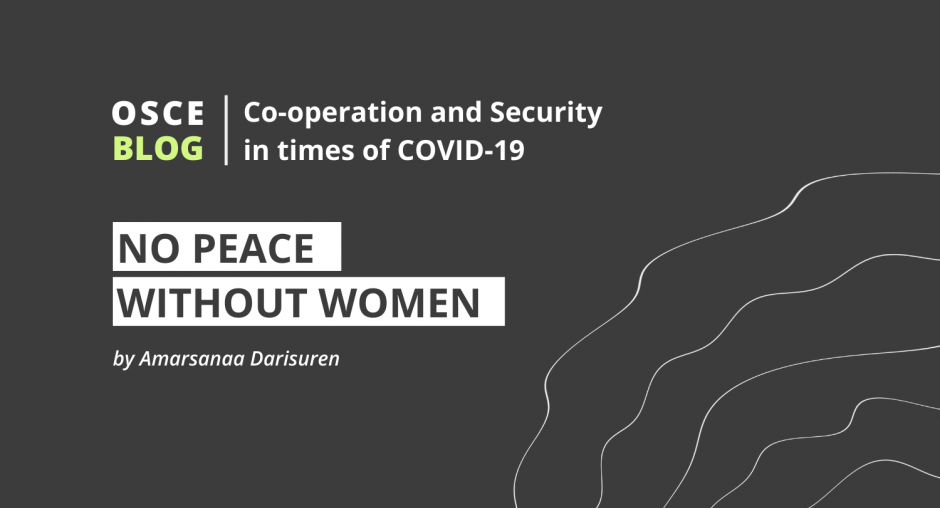No Peace Without Women

Twenty years ago today, on 31 October 2000, the United Nations Security Council adopted Resolution 1325 on Women, Peace and Security. Since then, our knowledge of the importance of women’s participation in the peace processes and in the security sector has steadily grown.
The OSCE, as the world’s largest regional security organization, has a large responsibility to promote the Women, Peace and Security agenda. We have acted on that responsibility. We have produced research, reports, and training manuals, built competence, and, most importantly, worked to support women at the grass-root level in their efforts to prevent conflicts. This 20th anniversary is definitely a time to celebrate success and the progress made.
At the same time, it is important that we reflect on the missed opportunities we have had over the past 20 years, and the consequences we face as a result. Could we have done more to prevent conflicts, and to protect women and girls from their impact? If we have fallen short in empowering women economically, so that they can play a full role in building stable societies, if we have failed at conducting gender-specific analyses of crises and operational responses, if we have failed at including women at all levels of peacebuilding, who has paid the price?
I wonder if we haven’t underestimated the organizational and cultural change required in order to implement gender perspectives in all our endeavours. Gender mainstreaming needs systematic change to structures and processes, and – most importantly – a change in culture.
What can we do to help bring about this change? We can encourage young women professionals to enter the security sector, work on disarmament issues and arm control discussion or negotiations.
We can institute consultations with women’s groups and women peacebuilders working at the grassroots level, to make sure that they are heard by governments and policymakers and that their efforts feed into official peace processes.
We can conduct gender sensitive conflict analysis, design and implement inclusive mediation processes, so that women’s perspectives are taken into account in our efforts to build sustainable peace.
As of 1 September 2020, 39 participating States have adopted national action plans (NAPs) to implement UNSCR 1325. It is important that these NAPs be implemented at the local level, involving local governments, civil society organizations and women’s groups.
Implementing gender equality in the security sector, this new way of doing and viewing things, is not an effort to be kind to women, but a benefit to us all. Let us take seriously recent research demonstrating the close link between the wellbeing of women and the wellbeing of societies, critical for prevention of conflicts.
To bring about real change, we need to begin with ourselves. Challenge our own stereotypes about gender roles in family and society. Promote women’s leadership at our own workplaces and within our own organization.
At the OSCE, we have adopted a gender parity strategy, aiming to reach parity between male and female staff by 2026. We have achieved parity at the lower and mid-professional levels, but at the level of senior and Head of Mission posts we are still lagging behind. We still have work to do.
On this 20th anniversary of UNSCR 1325, let us recommit to making the changes necessary to ensure the fair participation of women and men in building societies that are resilient and safer for all.

